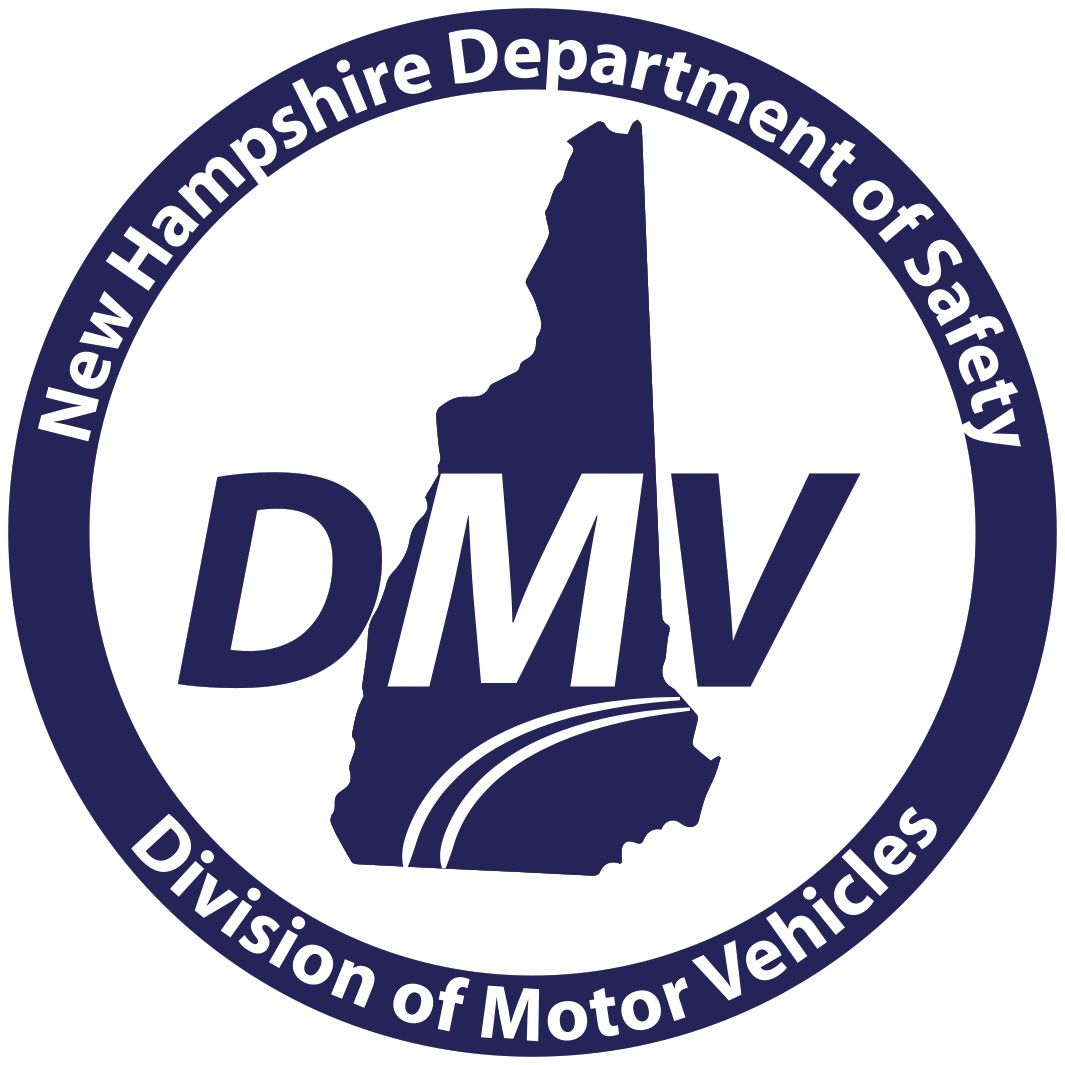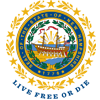Frequently Asked Questions – International Registration Plan
Frequently Asked Questions regarding the International Registration Plan.
-
What types of vehicles must register with the IRP office?
-
What is a base jurisdiction?
-
What are the requirements for registering in a base jurisdiction?
-
How are IRP fees calculated?
-
What types of payment are accepted?
-
Can IRP registrations be processed through the mail?
-
What forms are necessary to apply for an IRP registration?
-
May I have a Vanity IRP plate?
-
What is a trip permit?
-
What is an Unladen Vehicle Registration-Hunter Permit?
-
What is the difference between IRP and IFTA?
-
What is the Federal Heavy Vehicle Use Tax?
-
Does the IRP registration exempt the need to pay town or city permit fees?
-
Once I have an IRP registration, am I still required to display a US Department of Transportation (DOT) number?
-
What types of vehicles must register with the IRP office?
A vehicle conducting commercial business that leaves New Hampshire and travels to other jurisdictions is considered an Apportioned Vehicle:
- A power unit having two (2) axles and a gross vehicle weight (GVW) in excess of 26,000 pounds or 11,793.401 kilograms.
- A power unit having three (3) or more axles, regardless of weight.
- Used in combination, when the GVW of such combination exceeds 26,000 pounds or 11,793.401 kilograms.
-
What is a base jurisdiction?
“Base Jurisdiction” means the Member Jurisdiction, selected in accordance with Section 305, to which an Applicant applies for apportioned registration under the Plan or the Member Jurisdiction that issues apportioned registration to a Registrant under the Plan.
-
What are the requirements for registering in a base jurisdiction?
Pursuant to Part 305 of the International Registration Plan, SELECTION OF BASE JURISDICTION:
(a) An Applicant may elect as its Base Jurisdiction any Member Jurisdiction
(i) where the Applicant has an Established Place of Business,
(ii) where the Fleet the Applicant seeks to register under the Plan accrues distance, and
(iii) where Records of the Fleet are maintained or can be made available.(b) An Applicant that does not have an Established Place of Business in any Jurisdiction may designate as a Base Jurisdiction any Member Jurisdiction
(i) where the Applicant can demonstrate Residence,
(ii) where the Fleet the Applicant seeks to register under the Plan accrues distance, and
(iii) where Records of the Fleet are maintained or can be made available.(c) To establish Residence in a Member Jurisdiction, an Applicant must demonstrate to the satisfaction of the Member Jurisdiction at least three of the following:
(i) if the Applicant is an individual, that his or her driver’s license is issued by that Jurisdiction,
(ii) if the Applicant is a corporation, that it is incorporated or registered to conduct business as a foreign corporation in that Jurisdiction,
(iii) if the Applicant is a corporation, that the principal owner is a resident of that Jurisdiction,
(iv) that the Applicant’s federal income tax returns have been filed from an address in that Jurisdiction,
(v) that the Applicant has paid personal income taxes to that Jurisdiction,
(vi) that the Applicant has paid real estate or personal property taxes to that Jurisdiction,
(vii) that the Applicant receives utility bills in that Jurisdiction in its name,
(viii) that the Applicant has a Vehicle titled in that Jurisdiction in its name, or
(ix) that other factors clearly evidence the Applicant’s legal Residence in that Jurisdiction. -
How are IRP fees calculated?
Fees will vary depending upon the weight of the vehicle, jurisdictions traveled, etc. Fees are determined by multiplying the percentage of miles traveled in each IRP jurisdiction in which the registrant is apportioned, by each jurisdiction's registration fees.
For additional assistance in calculating fees, please visit IRP, Inc.
-
What types of payment are accepted?
Payment types accepted:
- Cash (in person only).
- Check.
- Money order.
- MasterCard, Visa or American Express.
-
Can IRP registrations be processed through the mail?
Yes.
-
What forms are necessary to apply for an IRP registration?
The following forms may be obtained at either the Concord DMV office, or the Twin Mountain DMV office.
- Schedule A/E & Schedule B - New accounts.
- Schedule C - Changes to an existing account.
- Schedule F - Adding jurisdictions to an existing account during the registration year.
-
May I have a Vanity IRP plate?
Yes. Please visit our Vanity Plate section for more information.
-
What is a trip permit?
A trip permit:
- Is issued in lieu of IRP credentials to a vehicle that is properly registered in its base jurisdiction but which has not been apportioned for the jurisdiction(s) in which immediate travel is desired.
- Is required if the carrier does not intend to apportion with a jurisdiction.
- Allows the vehicle to operate interjurisdictionally or intrajurisdictionally for a limited amount of time.
-
What is an Unladen Vehicle Registration-Hunter Permit?
- Each Member Jurisdiction shall provide a means of temporary registration of unladen Apportionable Vehicles. Such registration shall be issued for a minimum fee and for a registered gross weight not in excess of the empty weight of the Vehicle or Combination of Vehicles being registered. The evidence of registration issued under this Section shall be valid in all Member Jurisdictions.
-
What is the difference between IRP and IFTA?
The difference is:
- IRP is a cooperative agreement for registering vehicles that travel into two (2) or more jurisdictions.
- IFTA (International Fuel Tax Agreement) is an agreement between member jurisdictions for the uniform collection and distribution of fuel tax revenues.
For more information regarding IFTA, please contact the Department of Safety, Bureau of Road Toll.
-
What is the Federal Heavy Vehicle Use Tax?
The Federal Heavy Vehicle Use Tax (HVUT) (Form 2290) is assessed on vehicles weighing 55,000 lbs. or more. This tax must be paid to the IRS before registering and proof of payment is required at the time of registration. The following are acceptable to show of proof of payment:
- A copy of a receipted IRS Schedule (Form 2290) listing the vehicle identification numbers.
- A copy of the IRS Schedule (Form 2290) with a copy of a document showing proof of payment, such as the front and back of a cancelled check.
Electronic filing. Electronic filing is required for each return reporting twenty-five (25) or more vehicles that the taxpayer files during the tax period. However, all taxpayers are encouraged to file electronically. File Form 2290 electronically through a provider participating in the IRS e-file program for excise taxes. Once your return is accepted by the IRS, your stamped Schedule 1 can be available in as little as 24 hours. For more information on e-file, visit www.irs.gov and search "2290 e-file".
Proof of payment is not required when registering new or used vehicles within sixty (60) days of the date shown on the bill of sale. Contact IRS for more information.
-
Does the IRP registration exempt the need to pay town or city permit fees?
No RSA 261:148
-
Once I have an IRP registration, am I still required to display a US Department of Transportation (DOT) number?
Yes, a commercial vehicle with a GVW in excess of 10,000 pounds, if leaving the base jurisdiction. Contact the US DOT at 800-832-5660.



